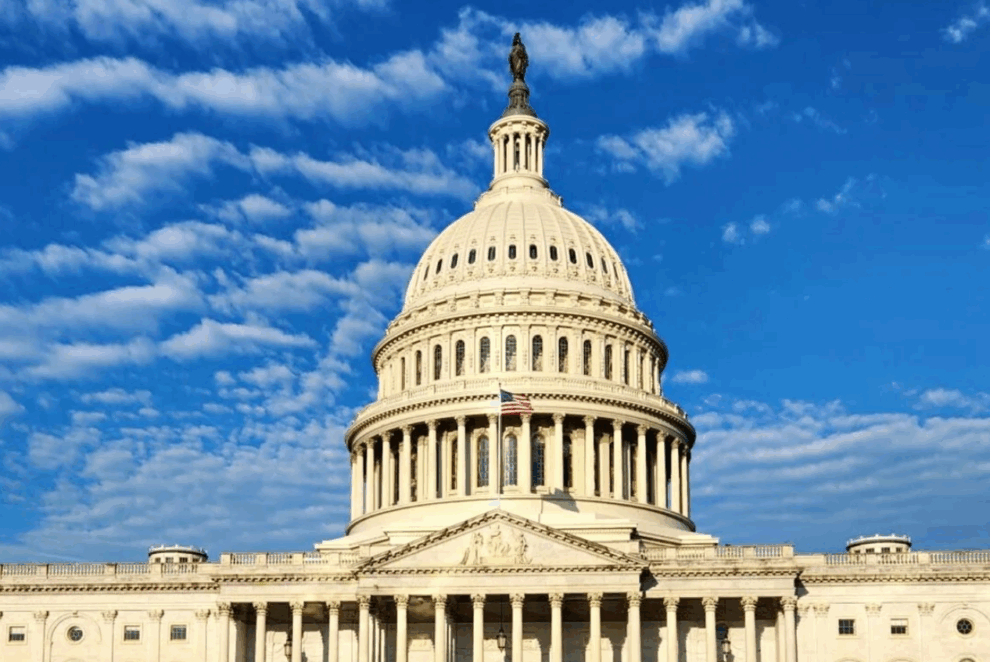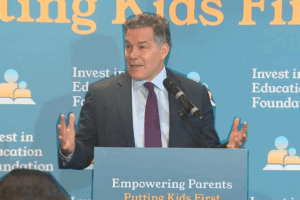After an all-night session, the Senate-amended GOP megabill package now heads to the House.
On Tuesday, Senate Republicans passed President Trump’s “One Big, Beautiful Bill” after spending the night debating prior to the vote.
Three Republicans voted against the bill, resulting in Vice President JD Vance being called to the Capitol to cast the tiebreaking vote.
The measure passed 51 to 50, and it included President Trump’s top priorities of extended tax cuts, new tax breaks, and more funding towards defense and border security.
The bill has made its way back to the House, where members are currently holding a hearing on the Senate amendment in the Rules Committee. Any changes made to the bill in the House will result in it being sent back to the Senate.
Following Tuesday’s Senate vote, Senate Majority Leader John Thune said, “We were very excited to be a part of something that was going to make America stronger, safer and more prosperous. And it really starts with an agenda that President Trump laid out when he was running last year.”
Republican Senators Rand Paul, Thom Tillis, and Susan Collins voted against the bill. Paul voted against the bill because it would raise the national debt limit by $5 trillion. Tillis and Collins joined Democrats over funding changes to Medicaid that could result in millions of people losing coverage.
Senator Lisa Murkowski ultimately joined Republicans to pass the bill after initial objections to its changes to Medicaid and nutrition-assistance programs, as well as changes to clean-energy tax credits.
The bill underwent changes in the Senate that aided its crossing the finish line on Tuesday.
Those changes included a delay in nutrition-assistance cuts for states that have a higher payment error rate, including Alaska, which helped earn Murkowski’s support of the bill.
Republicans also doubled a rural health fund designed to mitigate the effects of the bill’s Medicaid cuts to $50 billion. An excise tax on wind and solar projects was removed.
Although she supported the bill during Tuesday’s vote, Murkowski has urged her colleagues in the House of Representatives to improve the bill before sending it to President Trump’s desk.
“This is probably the most difficult, agonizing, legislative 24-hour period that I have encountered, and I’ve been here quite a while, and you all know I’ve got a few battle scars underneath. I held my head up and made sure that the people of Alaska are not forgotten in this,” Murkowski told reporters.
Members in the House are uncomfortable with the changes to the bill made by the Senate chamber. The Senate’s version of the budget reconciliation bill includes harsher changes to state Medicaid financing mechanisms known as provider taxes.
The bill as it stands extends expiring tax cuts permanently across all income levels and adds new tax cuts for tipped workers, overtime pay, and factory construction. It aims to lower Medicaid spending by enforcing work requirements and instituting more frequent eligibility checks.
The bill also allocates billions of dollars toward border security and national defense spending.
Senator Thom Tillis voted against the bill days after announcing he will not seek re-election next year. He said he could not vote for a bill that would cost his state tens of billions of dollars in funding for hospitals and rural communities.
The Senate’s final version of the bill was 887 pages. Its fate will be decided in the House, where the other chamber can pass the Senate version by Trump’s July 4th deadline or make changes and send it back to the Senate.





